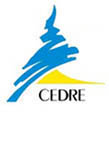Definition of franchising
Paradoxically, defining franchising is not always easy.
A decree of 29 November 1973 concerning the economic and financial terminology, which aimed to regulate foreign expressions in the French language, had translated the word "franchise" by "franchisage" and defines it as: "contract by which a company grants to independent companies, in exchange of a royalty fee, the right to present itself under its company name and its trademark to sell products or services. This contract usually goes with a technical assistance. "
The term "franchisage" was transformed into "franchise", a term known and used today.
This definition, far from complete, has since undergone many changes, and despite the different definitions of this term, given by the French and European institutions, the franchise has never been defined by a particular legal status, but by an aggregation of different legal status.
What is franchise?
It is a contractual relationship, which, in order to work normally, must include a number of obligations.
The “Cour de Cassation” (French supreme court) pointed out that franchise requires the combination of three essential elements:
a) the ownership or right to use a trademark, abbreviations and symbols, a sign and evidence concerning them;
b) the transmission by the franchisor of its know-how or its concept to the franchisee;
c) the continuing relationship, the provision by the franchisor of commercial or technical assistance for the duration of the contract.
Franchising is a system of collaboration between businesses, financially and legally independent, in order to market products or services under the same name. The franchisor provides its franchisees the right to operate a business, a trademark consistent with the concept he developed. He assures the franchisee of the transfer of its know-how and intellectual property rights, training and marketing support in exchange for the payment of an entrance fee and royalties.
In a definition of "franchise", the concept of "know-how" is essential. “Know-How” means practices, methods and techniques used by the franchisor in order to improve its results, to expand, to open up to new markets. The know-how includes information necessary for the sale of products or services offered by the tradesign: information on the presentation of goods for sale, their transformation within the framework service provision, the administrative and financial management, the organization and structure of the company ...
Finally, franchising is a reiteration of a concept that works and has proven its worthiness.
Franchising implicates a remuneration or economic benefit for the franchisor, owner of the trademark and know-how.
Caution! Note that now know how is evolving towards a concept of knowledge of success.









